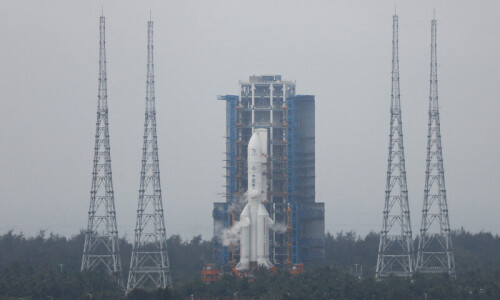AS Pakistan prepares for its 12th general elections, the glaringly low number of women candidates makes evident the deeply rooted gender disparity in the country. A look at the number of candidates vying for National Assembly seats is telling: among 5,112 candidates, only 313 are women. The Aurat Foundation’s recent complaint to the ECP spotlights this issue. According to the organisation, PPP, JI, ANP, TLP, JUI-F and BNP have fallen short of fielding at least 5pc female candidates on general seats. Even where women are nominated, they are often relegated to constituencies with slim winning chances, a tactic that tokenises rather than empowers female political participation. The situation is grimmer in Kohistan where canvassing for and by women was declared un-Islamic by some local clerics. Although the decree was dismissed by another Kohistan cleric as a “political stunt” to benefit the JUI-F, the very fact that it was issued and the insistence that defying it would be “sinful” is indicative of the kinds of societal hurdles women face. Beyond candidacy, the plight of women voters in conservative areas like Dhurnal in Punjab is equally troubling. There, educated women have been forbidden by their menfolk to exercise their right to vote. The ECP’s authority to void polls in areas where women are barred from voting remains a theoretical deterrent, with little on-the-ground impact where such conservative norms prevail.
Empowering women in Pakistan’s political arena requires more than just legislative quotas. It necessitates a cultural shift that values women’s contributions in public life, encourages their participation as candidates and voters, and fundamentally rethinks their role in Pakistani society. For this to occur, the ECP, political parties and civil society must collaboratively work towards dismantling the barriers — such as regressive traditions, lack of education, and societal expectations regarding household responsibilities — that sidelines half of the country’s population. It must be realised that a woman’s perspective is essential to understand issues like reproductive rights, education, violence against women, and economic empowerment, which disproportionately affect women. Their insight is vital in crafting policies that address these challenges. With the nation standing on the brink of another electoral exercise, we must reflect on the long road ahead in achieving gender parity in politics. The future of a truly democratic and inclusive Pakistan depends on it.
Published in Dawn, February 7th, 2024











































Dear visitor, the comments section is undergoing an overhaul and will return soon.